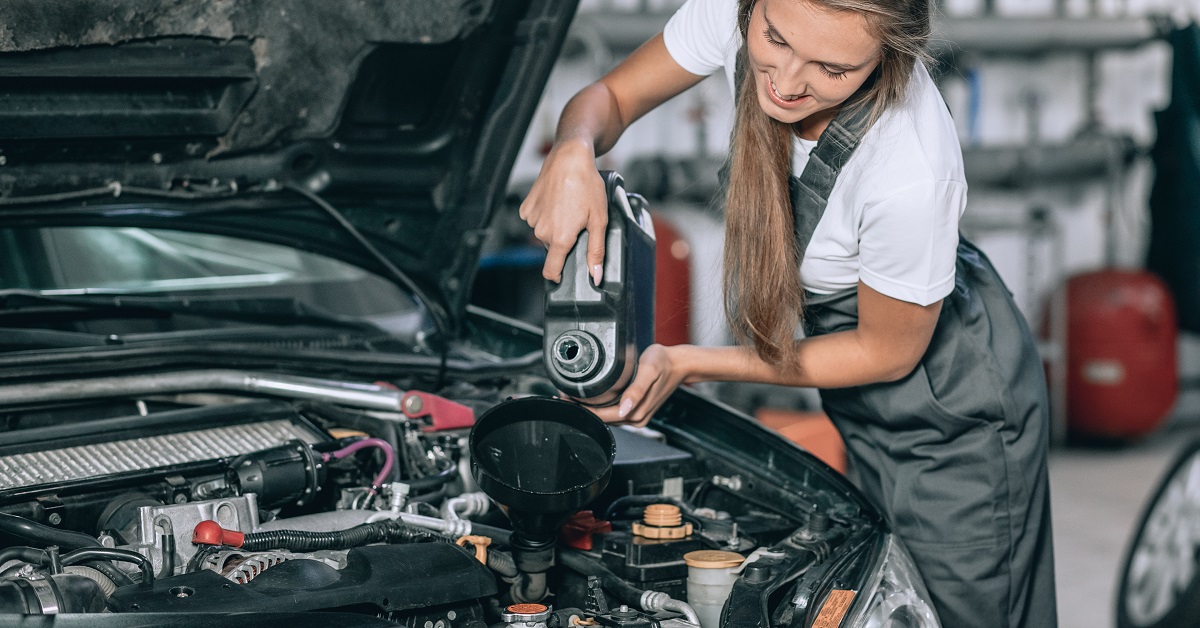All Categories
Featured
The timing belt is a critical component of your engine, responsible for integrating the activity of different engine components, such as the crankshaft and camshaft. This makes certain the engine's valves open and close at the right times throughout the combustion cycle. While the timing belt may not be something you assume around frequently, neglecting its upkeep can result in substantial engine damage and pricey fixings. Below's why timing belt replacement is essential for your lorry's long life and performance.
What Is a Timing Belt and How Does It Function? The timing belt is a rubber or composite material belt that links the crankshaft to the camshaft in an interior combustion engine. The camshaft controls the opening and closing of the engine's intake and exhaust shutoffs, and it needs to be timed flawlessly with the activity of the pistons in the engine. The timing belt makes sure that these components are in sync, permitting the engine to run smoothly.
If the timing belt comes to be or fails worn out, the camshaft and crankshaft will certainly no more be synchronized, which can trigger the engine's shutoffs to hit the pistons. This results in disastrous engine damages and commonly needs costly fixings or also an engine substitute.
Why Is Timing Belt Replacement Important? Over time, the timing belt can wear down because of friction, heat, and general engine wear. While it may seem like a little problem, a faulty timing belt can cause significant engine issues. Here's why timely replacement is vital:
Protecting Against Engine Damage: As mentioned, a broken or slipping timing belt can trigger the engine's pistons and valves to collide. This causes bent shutoffs, harmed pistons, and in extreme instances, a full engine failure. Changing the timing belt prior to it breaks can stop this costly damages.
Keeping Engine Effectiveness: A damaged timing belt can disrupt the synchronization of the engine elements, lowering total engine efficiency. Replacing the belt aids maintain ideal engine function, guaranteeing smooth procedure, boosted fuel performance, and far better performance.
Preventing Unforeseen Breakdown: A damaged timing belt can leave you stranded on the side of the roadway, creating a significant inconvenience. By replacing the timing belt at the advised periods, you can stay clear of the danger of an unexpected breakdown, specifically in the center of a lengthy journey or when you the very least expect it.
![]()
Saving Cash in the future: While timing belt substitute can look like a cost you may intend to delay, it's more affordable than the expense of fixing or replacing a damaged engine. If the timing belt breaks, the replacement price is fairly budget-friendly contrasted to the considerable repair services called for. Aggressive maintenance can save you thousands of dollars in repair services and maintain your automobile's value.
When Should You Replace the Timing Belt? The timing belt substitute timetable can vary depending on your automobile's make and version. As a whole, a lot of suppliers advise changing the timing belt every 60,000 to 100,000 miles. Nevertheless, it's constantly best to consult your proprietor's handbook or a relied on technician for details referrals for your vehicle.
Signs that your timing belt may be in requirement of replacement consist of uncommon engine sounds such as ticking or yawping, difficulty starting the engine, or a noticeable reduction in engine performance. It's essential to have the timing belt checked right away. if you experience any of these signs and symptoms.
![]()
Final thought. Changing the timing belt at the advised intervals is a crucial component of preserving your engine's wellness and guaranteeing that your automobile runs smoothly. A broken timing belt can lead to pricey repair work, engine failure, and unanticipated break downs, which can be stayed clear of with appropriate maintenance.
What Is a Timing Belt and How Does It Function? The timing belt is a rubber or composite material belt that links the crankshaft to the camshaft in an interior combustion engine. The camshaft controls the opening and closing of the engine's intake and exhaust shutoffs, and it needs to be timed flawlessly with the activity of the pistons in the engine. The timing belt makes sure that these components are in sync, permitting the engine to run smoothly.
If the timing belt comes to be or fails worn out, the camshaft and crankshaft will certainly no more be synchronized, which can trigger the engine's shutoffs to hit the pistons. This results in disastrous engine damages and commonly needs costly fixings or also an engine substitute.
Why Is Timing Belt Replacement Important? Over time, the timing belt can wear down because of friction, heat, and general engine wear. While it may seem like a little problem, a faulty timing belt can cause significant engine issues. Here's why timely replacement is vital:
Protecting Against Engine Damage: As mentioned, a broken or slipping timing belt can trigger the engine's pistons and valves to collide. This causes bent shutoffs, harmed pistons, and in extreme instances, a full engine failure. Changing the timing belt prior to it breaks can stop this costly damages.
Keeping Engine Effectiveness: A damaged timing belt can disrupt the synchronization of the engine elements, lowering total engine efficiency. Replacing the belt aids maintain ideal engine function, guaranteeing smooth procedure, boosted fuel performance, and far better performance.
Preventing Unforeseen Breakdown: A damaged timing belt can leave you stranded on the side of the roadway, creating a significant inconvenience. By replacing the timing belt at the advised periods, you can stay clear of the danger of an unexpected breakdown, specifically in the center of a lengthy journey or when you the very least expect it.

Saving Cash in the future: While timing belt substitute can look like a cost you may intend to delay, it's more affordable than the expense of fixing or replacing a damaged engine. If the timing belt breaks, the replacement price is fairly budget-friendly contrasted to the considerable repair services called for. Aggressive maintenance can save you thousands of dollars in repair services and maintain your automobile's value.
When Should You Replace the Timing Belt? The timing belt substitute timetable can vary depending on your automobile's make and version. As a whole, a lot of suppliers advise changing the timing belt every 60,000 to 100,000 miles. Nevertheless, it's constantly best to consult your proprietor's handbook or a relied on technician for details referrals for your vehicle.
Signs that your timing belt may be in requirement of replacement consist of uncommon engine sounds such as ticking or yawping, difficulty starting the engine, or a noticeable reduction in engine performance. It's essential to have the timing belt checked right away. if you experience any of these signs and symptoms.

Final thought. Changing the timing belt at the advised intervals is a crucial component of preserving your engine's wellness and guaranteeing that your automobile runs smoothly. A broken timing belt can lead to pricey repair work, engine failure, and unanticipated break downs, which can be stayed clear of with appropriate maintenance.
Latest Posts
Find Outstanding Auto Repair Care from Montclare Auto Repair – Reliable Repairs Await
Published May 28, 25
1 min read
Why Chicago Drivers Pick Montclare Auto Repair for Dependable Service and Big Savings
Published May 24, 25
1 min read
Explore WyHy FCU Reduces Your Costs on Financing and Accounts
Published May 24, 25
1 min read
More
Latest Posts
Find Outstanding Auto Repair Care from Montclare Auto Repair – Reliable Repairs Await
Published May 28, 25
1 min read
Why Chicago Drivers Pick Montclare Auto Repair for Dependable Service and Big Savings
Published May 24, 25
1 min read
Explore WyHy FCU Reduces Your Costs on Financing and Accounts
Published May 24, 25
1 min read